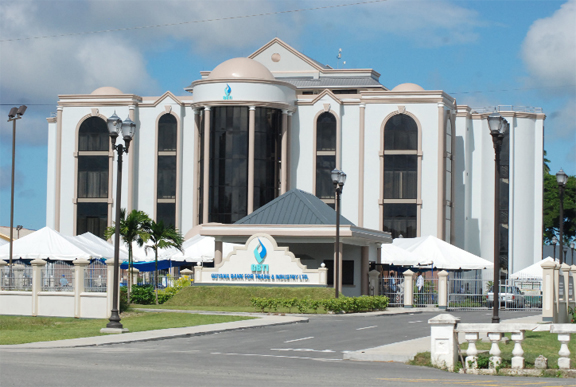s part of a money laundering investigation, the Special Organised Crime Unit (SOCU) is finally in possession of specific records it had asked the Guyana Bank for Trade and Industry (GBTI) to produce.
Though the Full Court of the High Court had last month ordered the bank to hand over the documents requested by SOCU, which says they are pertinent to the probe, the financial institution moved to the Court of Appeal for a stay of execution of the order.
At a hearing yesterday afternoon, however, Justice of Appeal Dawn Gregory denied the bank the stay.
According to SOCU’s lawyer, Leslyn Noble, GBTI has since submitted documents and materials, in compliance with the order made by Full Court judges Nareshwar Harnanan and Fidela Corbin-Lincoln.
The judges had declared that Section 24 of the Anti-Money Laundering and Countering the Financing of Terrorism Act does not prohibit the production of copies of banker’s books as the bank sought to contend.
An initial order had been granted on July 5th, in which Justice Franklin Holder directed GBTI to produce to SOCU specific records of transactions and documents which the latter said are relevant to identifying, locating or quantifying property (tainted as the case may be) or locating a document necessary for the transfer of such property, where a person is being investigated for a serious offence—money laundering—pursuant to the Anti-Money Laundering Act.
SOCU has been asking the bank for the documents, which it says are needed for its investigations of alleged falsification, forgery and larceny with respect to 28 transactions involving in excess of $20,000,000 at the Guyana Gold Board.
So far, the investigations have led to the arrest and charging of three persons—Deborah Forbes, Rosanna Ramnarine-Mangal and Keith Dyer.
In its appeal to the Full Court of Justice Holder’s ruling, the bank had argued that he erred in not ordering service of the application on it and as a result it had not been given an opportunity to be heard.
It advanced, also, that the judge erred in ordering the production of documents, including banker’s books, which it argued section 24 (2) of the Anti-Money Laundering Act prohibits.
Refuting these arguments, however, Noble had said that the Act provided for comprehensive powers for the prosecution of money laundering, terrorist financing and other financial crimes and requires reporting entities, which includes the bank, to take preventive measures to help combat money laundering and terrorist financing and matters connected therewith.










